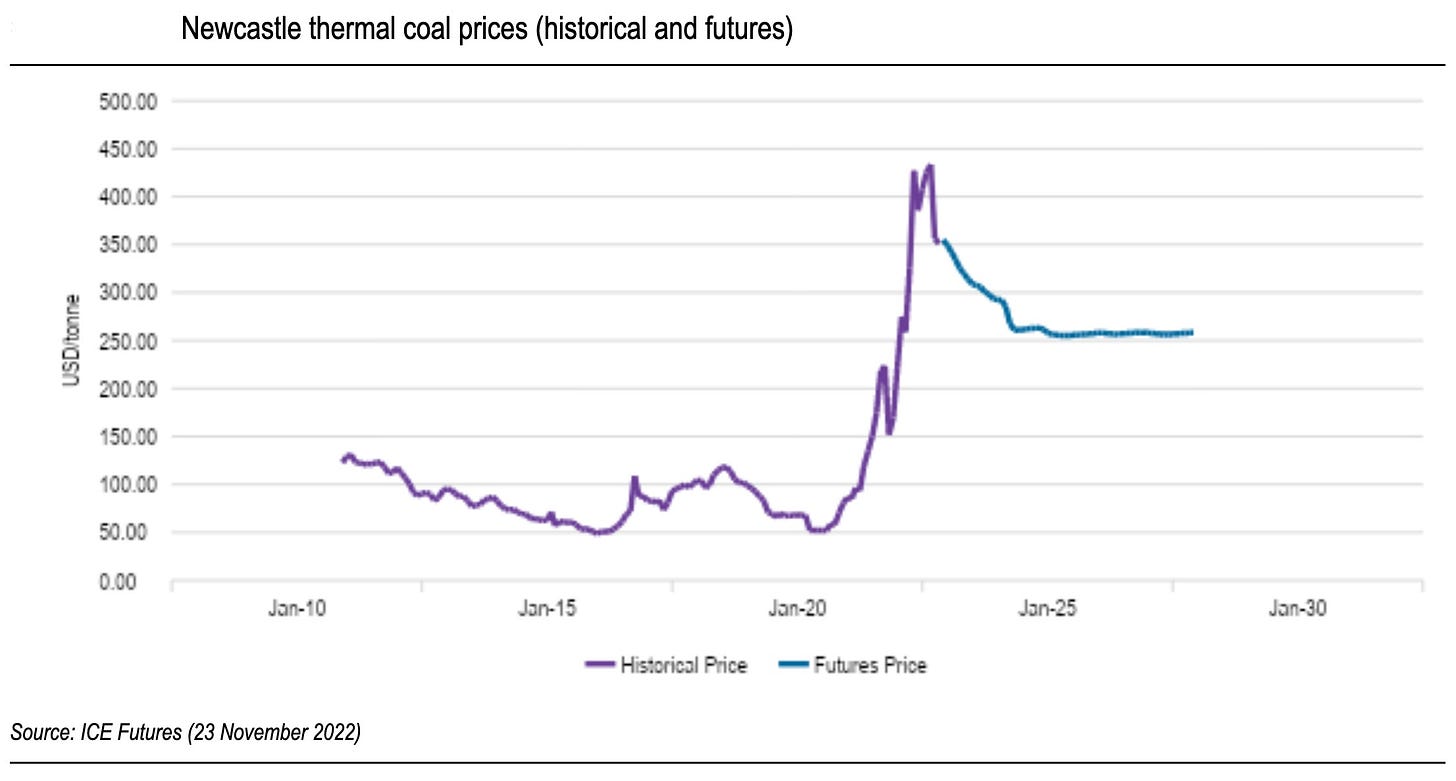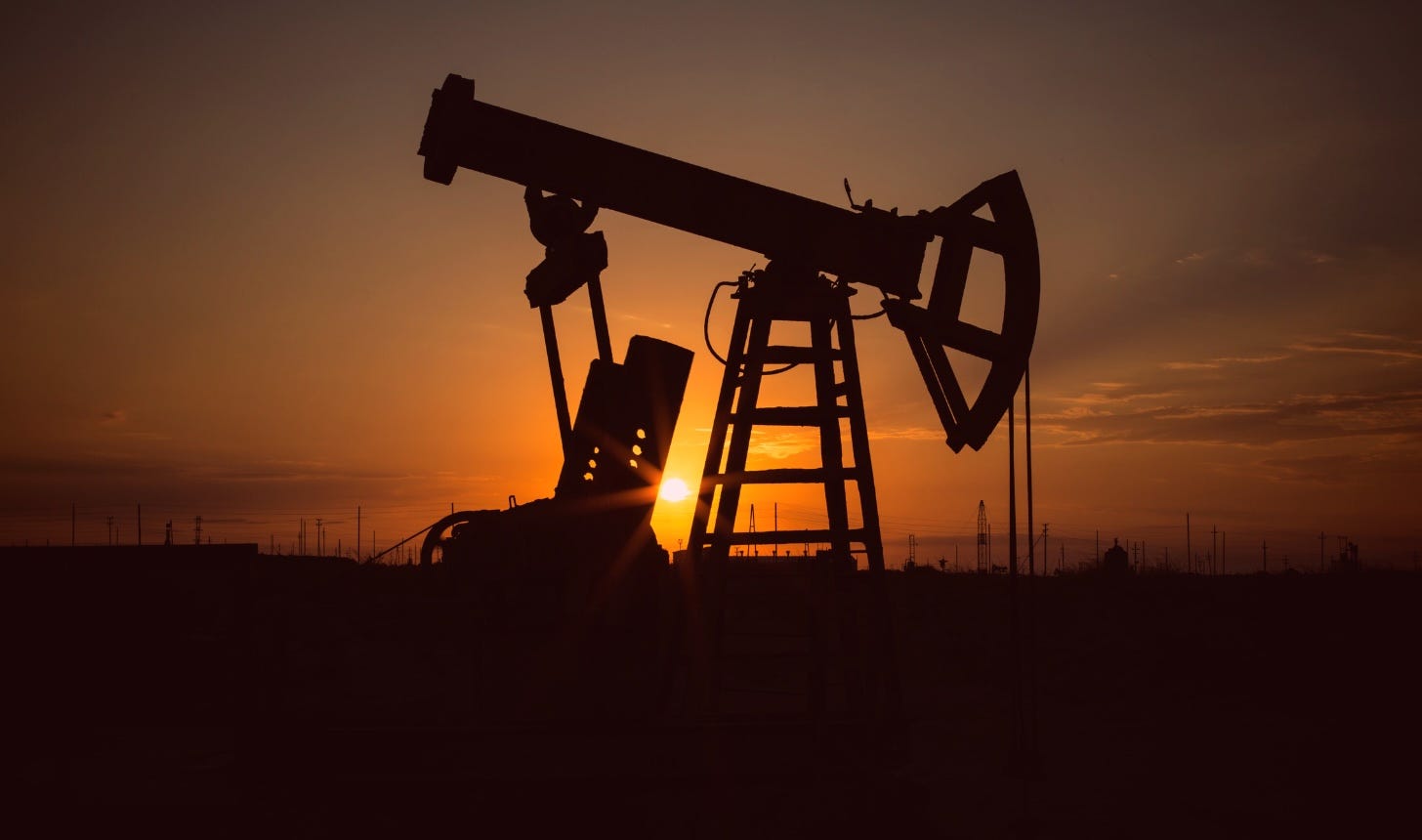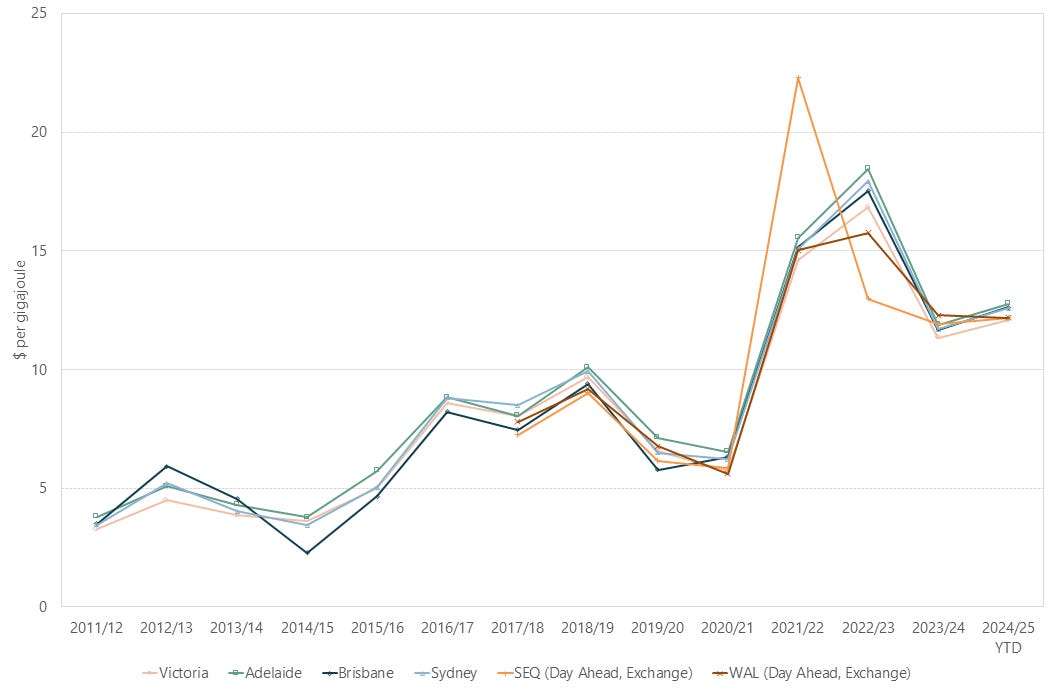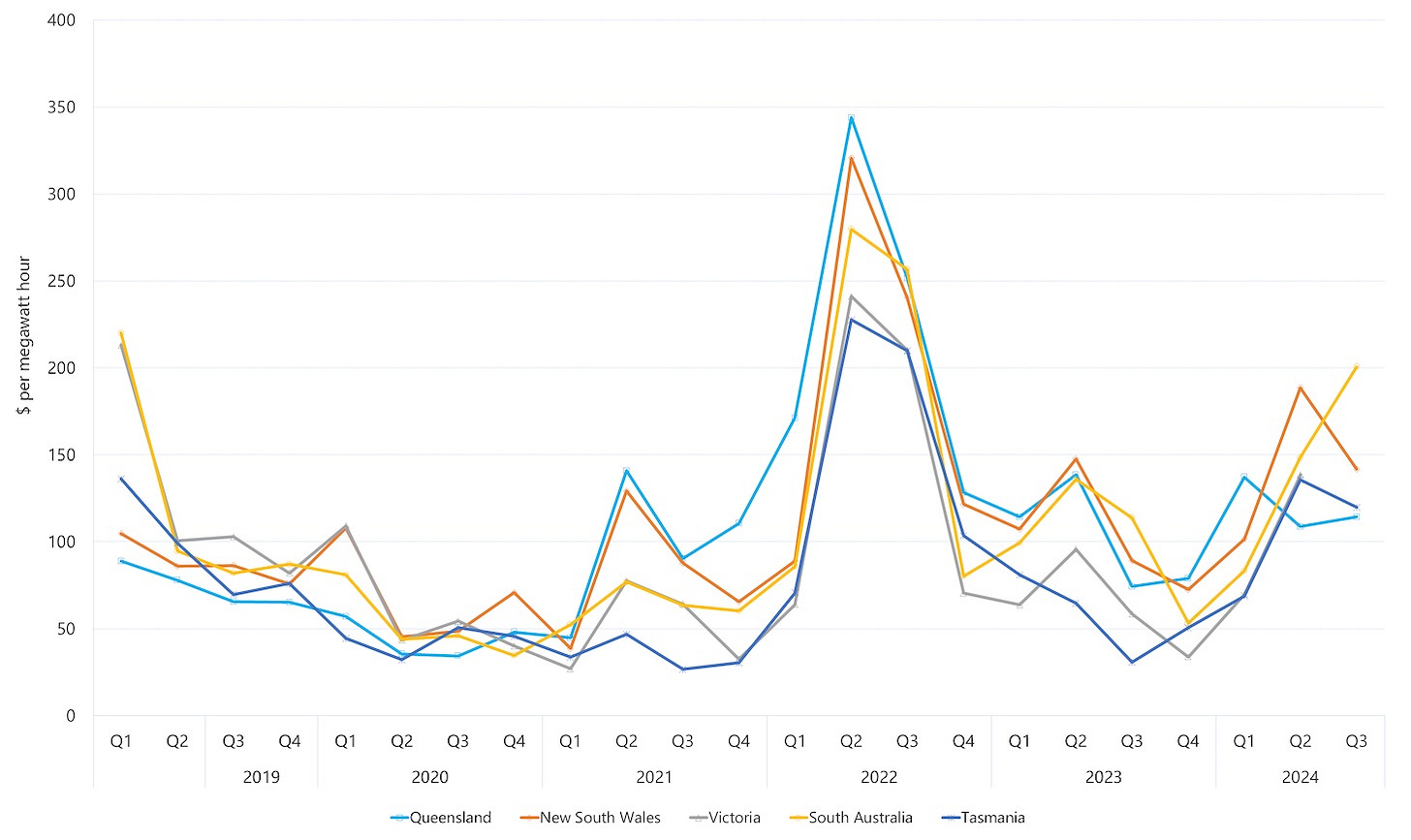Trump’s ‘Drill, baby, Drill’ plan is a disaster for national security
Lessons from Australia teach us that going all-in on fossil fuel exports is a recipe for volatile energy supplies and higher prices. Trump’s 'Drill, baby, Drill' will leave Americans vulnerable.
In July 2022, I was covering the Sydney Energy Forum for RenewEconomy. The forum was convened by the then newly elected Australian Labor Government and brought together Australia’s major trade partners to collaborate on opportunities in clean energy supply chains.
At the time, global energy markets were reeling from the impacts of Russia’s invasion of Ukraine, which had disrupted energy supplies to Europe. Those disruptions rippled through global energy markets, pushing fossil fuel prices higher in virtually every market.
On the surface, the conference was about allies like Australia, the United States, Japan, India and other Indo-Pacific nations responding to the impacts of Russia’s invasion by forming new trade and collaboration agreements on low-emissions tech. The United States, in particular, had a major presence at the Sydney Energy Forum having sent then-US energy secretary Jennifer Granholm.
What went unspoken at the forum was the emerging threat from China. While the rest of the Indo-Pacific was well represented, Chinese representation was effectively nil. China controls a huge proportion of the global supply of clean energy equipment – particularly solar panels, wind turbines, batteries and electric vehicles and it was that level of control that had likely prompted the Australian Government to convene the forum.
The likely reasoning was that if Russia had been able to cause the level of chaos it had achieved in global gas markets by invading a neighbour, could not China also cause similar levels of disruption to the deployment of clean energy, if it decided to withhold supplies of solar, wind, battery and EV products from the United States or Australia?
Such a fear was never spoken out loud at the forum – if only to avoid provoking the Chinese government and causing a diplomatic incident - but Secretary Granholm made clear that it was critical the United States and its allies made greater investments in not just deploying renewable energy technologies, but also in developing their own domestic clean technology manufacturing capabilities.
“If we want to build a clean economy that avoids the vulnerabilities we see today, as Putin weaponises gas in Europe today, we have to work together. We have to collaborate,” Granholm told the forum.
“We have to collaborate to speed the development of new technologies and share novel innovations. We have to collaborate to spread them across the global market. Most of all, we have to collaborate to diversify our supply chains and protect them from outside threats.”
While the events of the 2022 Sydney Energy Summit may well disappear into obscurity with time, the sentiment remains ever valid - and provides critical context – as the second Trump presidency begins to play out.
This is a brief interlude to ask for your support in fundraising for the World Wildlife Fund.
In March, I will be running the 2025 New York City Half Marathon as part of the Panda Nation team, and raising funds for the World Wildlife Fund.
Please donate to support WWF and its work towards protecting the future of nature.
All donations go directly to the World Wildlife Fund and will support their work fighting to protect the environment, advocating for climate action, protecting endangered species, preserving threatened habitats, and addressing global threats like deforestation.
Thank you for giving what you can.
Trump’s short-sighted view of American energy risks
We are just two weeks into Donald Trump’s second term as US President, and the overhaul of the policies and programs of the Biden administration is happening at a breakneck pace. Ramp up fossil fuels, halt the clean energy roll-out, was the general message.
In his declaration of a national energy emergency, Trump acknowledged that the United States energy supply is vulnerable to outside actors but misdiagnosed the problem.
“In an effort to harm the American people, hostile state and non-state foreign actors have targeted our domestic energy infrastructure, weaponised our reliance on foreign energy, and abused their ability to cause dramatic swings within international commodity markets,” the executive order states.
“An affordable and reliable domestic supply of energy is a fundamental requirement for the national and economic security of any nation.”
To achieve this, Trump’s orders call for a massive increase in fossil fuel production. However, heavy dependence on fossil fuels is what allows foreign actors to sow chaos in energy markets.
Digging deeper into Australia’s recent experience shows how a far-away conflict can destabilise local energy markets.
Australia tried ‘Drill, baby, Drill’ and prices skyrocketed
Australia is one of the world’s largest exporters of fossil fuels, sending the vast majority of coal and gas offshore. According to Australian Government figures, around 90 per cent of Australia’s coal production and 75 per cent gas production is exported.
As a result, Australian domestic coal and gas prices are generally pegged to international prices, with Australian households and businesses competing with energy buyers from China, South Korea and Japan for Australian energy supplies.
The effect of this was evident in mid-2022 – at the time of the Sydney Energy Forum. Despite being a nation rich with coal and gas – and where the extraction of those resources is very well developed – Australians were not protected from the upheaval caused by Russia’s invasion of Ukraine.
In the first half of 2022, wholesale gas prices in Australia more than tripled.
The price of coal from Australian ports skyrocketed above normal levels.

And this had flow-on impacts for wholesale electricity prices – with Australian consumers slapped with significant increases in charges.
Such was the impact on domestic markets, that the government temporarily halved the excise on fuel, and energy regulators were forced to suspend domestic electricity markets after price spikes for coal and gas caused an unprecedented meltdown.
A large fossil fuel industry did not protect consumers, but rather deepened the vulnerabilities to outside actors and weakened national security. In Australia’s case it made no difference that the volumes of coal and gas Australia produces are many multiples more than domestic consumption, the decision by Putin to invade Ukraine was responsible for price spikes across almost all of Australia’s energy markets, and domestic energy users were left to pay the cost.
The United States has already battled cartel behaviour
Fossil fuel markets are vulnerable to the influences of outside actors in two ways relevant to national security; disruptions caused by conflict and by cartel behaviour.
Inherently, fossil fuels are a commodity that can be controlled by a few powerful interests. Cartel behaviour exhibited by some countries – OPEC is a leading example of a highly institutionalised cartel operating in oil markets – shows how external actors can control the supply of energy to spike or collapse prices.
The vulnerability to cartel behaviour can be, to some degree, mitigated by delinking domestic supply from international markets. This was the approach adopted by the United States when it banned the export of domestically produced oil in 1975. The ban was designed to shield the United States from a repeat of the skyrocketing gasoline prices triggered by the 1973 Arab oil embargo.
With the export ban in place, the United States enjoyed a prolonged period of energy price stability, with local gasoline and fossil gas prices substantially below those of global trading peers – at least until the ban on oil exports was repealed by Congress in 2015.
The repeal of the oil export ban then re-linked American gasoline prices to global markets. Despite Obama-era policies contributing to a massive surge in American oil and gas production in the early 2010s, US consumers were hit by the same global surge in energy prices that had befallen Australia in the wake of Russia’s invasion of Ukraine. After decades of comparatively low fuel prices, and with the price shield the ban had sought to provide removed, American gasoline prices spiked to an historical peak in June 2022.
Trump has no intention of reintroducing a ban on fossil fuel exports, instead he wants to open up American energy supplies to the global market. As Trump said in his Inaugural Address:
“We have something that no other manufacturing nation will ever have — the largest amount of oil and gas of any country on earth — and we are going to use it. We’ll use it,” Trump said.
“We will bring prices down, fill our strategic reserves up again right to the top, and export American energy all over the world. We will be a rich nation again, and it is that liquid gold under our feet that will help to do it.”
But, as history has shown - in Australia and the United States - you cannot have an expansive energy export industry and expect to retain control over the prices paid domestic consumers.
Trump’s ’Drill, baby, Drill’ plan will merely work to enrich fossil fuel companies, leave American households and businesses vulnerable to energy price spikes - which could be created by hostile actors. It will also undermine global efforts to tackle the climate crisis.
Clean energy is the pathway to peace and lower prices
Clean energy sources – especially wind and sunshine – cannot be controlled by a cartel or disrupted by war. They are abundant. The sun shines and the wind blows, and their supply cannot be controlled by any government or corporate (at least until such time as a Mr Burns-esque Sun Blocker is invented). Renewables do not lead to the same national security vulnerabilities or price volatility that are inherent to fossil fuels.
As Granholm told the Sydney Energy Forum in 2022:
"No country has ever been held hostage to access to the sun. No country has ever been held hostage to access to the wind. They have not ever been weaponised, nor will they be," Granholm said.
"So, therefore, our move to clean energy globally could be the greatest peace plan of all."
The path to energy security is through investment in domestic clean energy manufacturing – it is the only realistic path to energy independence and lower energy prices for domestic energy consumers. Thankfully, it also happens to be the path that will help us avoid the worsening climate crisis.
The Biden Administration, through the Inflation Reduction Act (IRA), had put America on track to grow its clean energy manufacturing capabilities and achieve true energy independence. Trump’s efforts to dismantle the IRA and go all-in on fossil fuels are a national security disaster waiting to happen.








